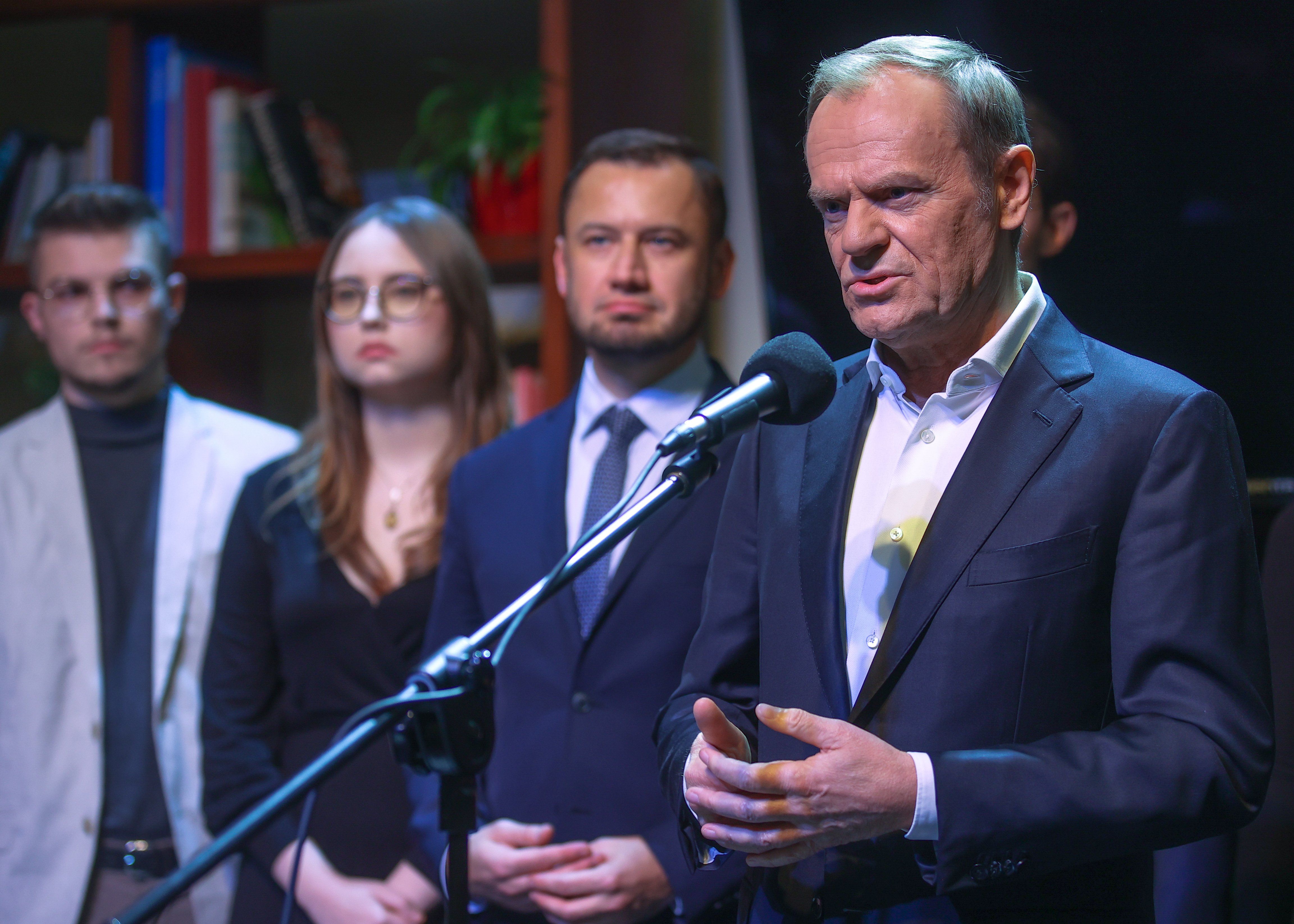After six years of acrimonious disputes with Warsaw over allegations that the Polish government was rolling back democracy and eroding the rule of law, Brussels is now dropping the issue.
The spat began under the previous Polish government, which was controlled by the right-wing nationalist Law and Justice Party. It introduced judicial reforms that the top EU court ruled had curbed judicial independence. The EU imposed fines, partly blocked access to European budget funds, and initiated sanctions that could have jeopardized Poland’s EU voting rights.
The standoff was complicated by the fact that even as Warsaw squabbled with Brussels over domestic issues, Poland took a lead in supporting Ukraine in its fight against Russia, a major EU foreign policy priority.
Burying the hatchet. The European Commission said Monday that in light of changes made by the centrist Polish government of Donald Tusk, which was elected last year after a season of deeply polarizing campaigns, it would drop the claims, confident that “today marks the opening of a new chapter for Poland.”
That leaves Hungary, governed by the proudly “illiberal” Viktor Orbán, as the only EU country still facing sanctions over rule-of-law violations.
More For You
Seventy-eight years after helping found the World Health Organization (WHO), the United States has formally withdrawn from the agency, following through on a pledge President Donald Trump made on his first day back in office.
Most Popular
GZERO World heads to the World Economic Forum in Davos, where Ian Bremmer lookst at how President Trump’s second term is rattling Europe, reshaping both transatlantic relations and the global economy, with Finland’s President Alexander Stubb and the IMF’s Kristalina Georgieva.
At the 2026 World Economic Forum in Davos, entrepreneur Strive Masiyiwa warned that artificial intelligence is advancing faster than the global leadership needed to manage it.
On Thursday, Ukraine’s energy minister said that the power grid suffered its most difficult day since Russia’s full-scale invasion in 2022.
